OLC held its first regional event, OLC Collaborate, on February 24, 2015 at the Kauffman Foundation Conference Center in Kansas City, MO, with our academic partner. UMKC.



February 24, 2015
OLC held its first regional event, OLC Collaborate, on February 24, 2015 at the Kauffman Foundation Conference Center in Kansas City, MO, with our academic partner. UMKC.

Online learning professionals, educators and administrators spent the day to hear from the experts and collaborate on solving the challenges we all face in online higher education today. The day included the opportunity to hear from regional experts regarding current and emerging trends in online learning, collaborate and network with regional peers during group discussions on top-of-mind challenges that may impact the future of online learning – and careers

We’ll took a deep look at the challenges and impact of online learning in higher education today and work together to collaborate, define and help shape the changing university.
Presentations were followed by facilitator-led discussions to allow participants to delve into each topic in greater detail.
to share their knowledge on key topics affecting the changing university.
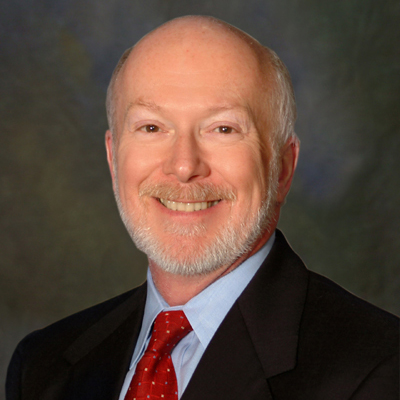
Marshall Hill
Executive Director
NC-SARA
Marshall Hill
Executive Director
National Council for State Authorization Reciprocity Agreements
NC-SARA
Higher Education needs a new way for states in the U.S. to oversee the delivery of postsecondary distance education. The current process is too varied among the states to support quality assurance and assure consistent consumer protection and too cumbersome and expensive for institutions that seek to provide education across state borders. The State Authorization Reciprocity Agreement is a voluntary agreement among member states, districts and territories that establishes comparable national standards for interstate offering of postsecondary distance education courses and programs, improves efficiency, and lowers institutional costs. This presentation will provide an overview and progress report on the SARA initiative. As of December 2014, 18 states have joined.
Marshall A. Hill is Executive Director of the National Council for State Authorization Reciprocity Agreements (NC-SARA), which provides a voluntary, regional approach to state oversight of postsecondary distance education. His involvement with SARA spans work with the Presidents’ Forum/ Council of State Governments drafting team, the development of SARA agreements with the country’s four regional higher education compacts, and membership on the National Commission on Regulation of Postsecondary Distance Education.
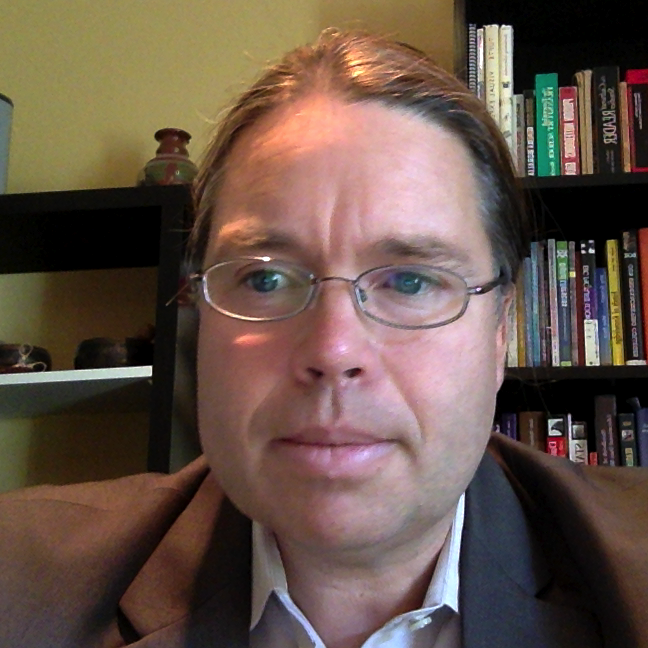
Dr. John Whitmer
Blackboard, Inc.
John Whitmer
Director of Platform Analytics and Educational Research
Blackboard
One certainty about the future of higher education is that online technologies will play an increasingly central role in the creation and delivery of learning experiences, whether through mobile apps, MOOCs, open content, ePortfolios, and other resources. As adoption increases, the ‘digital exhaust’ recording technology use has increasing potential to understand student learning. The emergent field of Learning Analytics analyzes this data to provide actionable insights for students, for faculty, and for administrators. What have we learned in Learning Analytics to date? What challenges remain? How should we apply Learning Analytics to create our ‘preferred’ future’ that supports deep and meaningful learning?
John is the Platform Analytics and Educational Research Director at Blackboard, where he leads the development of cross-application Learning Analytics for students, instructors, and administrators. These analytics provide insights into how students and faculty interact with educational technology applications, the fit/gap between product design and use, and the educational outcomes resulting from those interactions.
Prior to joining Blackboard in 2014, John managed large-scale distributed educational technology projects for the California State University, California Community Colleges, and an NSF-sponsored research consortium. John is also an applied researcher with published studies in Learning Analytics and MOOC effectiveness research, and currently serves on the Educause ECAR working group on Predictive LMS Analytics. He holds a Doctorate in Educational Leadership from UC Davis and a Master’s Degree in Sociocultural Anthropology from UC Davis.
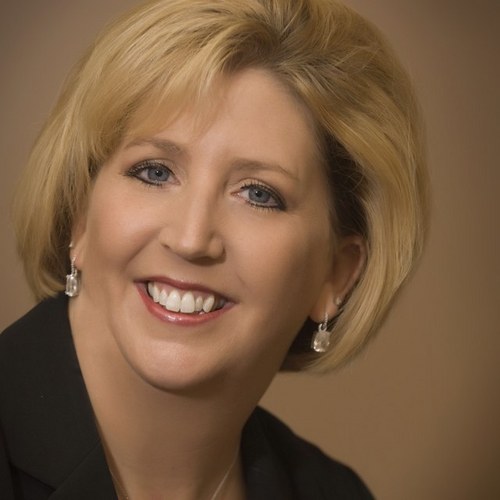
Angie Besendorfer
Missouri Chancellor
Western Governors University
Angie Besendorfer
Missouri Chancellor
Western Governors University
Western Governors University’s competency-based education model has been called the great disruptor in higher education. Since 1997, the university has grown from just an idea to the current enrollment of 53,000+ students. The online university has a unique delivery framework that pairs competency-based education with an unconventional faculty model. The innovative approach is resulting in student success particularly among the targeted audience of underserved adults seeking bachelor’s or master’s degrees. An overview of the WGU model and current results will be shared.
Angie Besendorfer currently serves as Chancellor of WGU Missouri. Previously she served the students of Joplin as Assistant Superintendent. She has served students in the field of education for over twenty years in Missouri schools as teacher, elementary principal, professional developer, director of special services and superintendent. She has received several honors including the National Milken Educator Award and Finalist for Missouri Teacher of the Year. Angie holds a Bachelor’s degree from Missouri Southern State University, a Master’s degree from University of Central Missouri, and an Educational Doctorate from University of Missouri Columbia. Her passion for public education is evident in all of her endeavors.
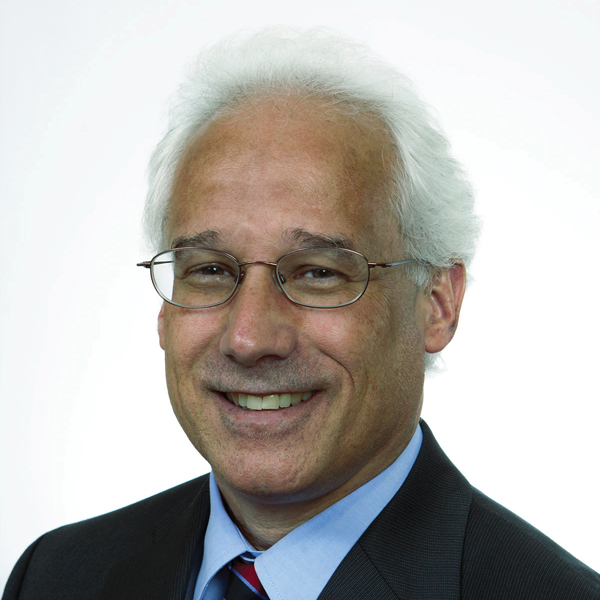
Devon A. Cancilla, Ph.D
Vice Provost for Online and Distance Learning
University of Missouri
Kansas City
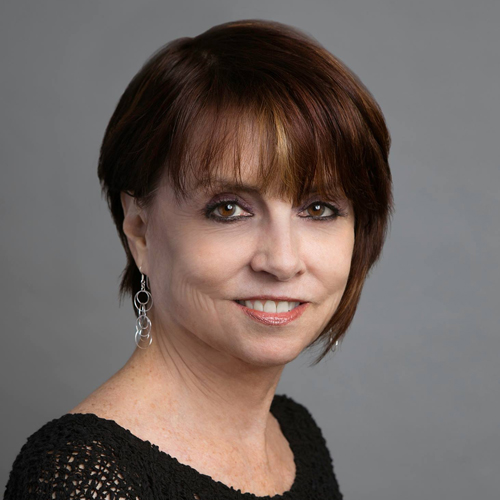
Kathleen Ives
Chief Executive Officer and Executive Director, OLC
Devon A. Cancilla, Ph.D
Vice Provost for Online and Distance Learning
University of Missouri – Kansas City
Kathleen Ives, D.M.
Chief Executive Officer and Executive Director
OLC
Significant changes are coming to higher education. From balancing the need for educational innovation against regulatory realities, to using data driven approaches to better understand and manage change, to a new model of the university built around competency-based assessments at Western Governors, these are just a few of the factors driving change. The day’s final session brings together the thoughts and conclusions generated from the OLC Collaborate – Kansas City discussions to formulate a regional response to the changing educational environment. Topics gathered by OLC facilitators and scribes during breakout sessions along with those posted online by participants during the day will be used to guide this interactive final session. Led by Devon Cancilla of UMKC and Kathleen Ives from the OLC, each of the day’s keynote speakers will have the opportunity to address the collectively generated questions and topics and place them in the context of the broader changes occurring in higher education. The OLC Collaborate – Kansas City response will become the first contribution to a national discussion as the OLC Collaborate sessions continue across the country.
Devon Cancilla is the Vice Provost of Online and Distance Learning at the University of Missouri at Kansas City (UMKC) where he works with various divisions within UMKC and the UM system to promote, support and develop online programs. Prior to this, he served as Dean of Business and Technology and was an Associate Provost for Learning at American Sentinel University. Dr. Cancilla was the Director of Scientific Technical Services and an Associate Professor in the Department of Environmental Science at Western Washington University where he researched the development of online laboratories through the NSF funded Integrated Laboratory Network (ILN) initiative. Dr. Cancilla received the John R. Bourne Award for Outstanding Achievements in Online education and an Effective Practice award from the Sloan-C (now the OLC) for his work in online science education. Dr. Cancilla continues to promote the use of online science programs with a particular interest in crowdsourcing, citizen science and data driven approaches to online science education.
Kathleen S. Ives, D.M. has worked in online technology for over 20 years and is currently the Online Learning Consortium’s Chief Executive Officer and Executive Director where she oversees the organization’s strategic direction. Dr. Ives assumes this leadership role after serving as interim CEO and Executive Director since October 2013. Additionally, she serves as faculty for the Institute for Emerging Leadership in Online Learning (sponsored by Penn State and OLC) and on the Leadership Advisory Board for the Center for Learning Innovations & Customized Knowledge Solutions (CLICKS). Formerly, Dr. Ives oversaw all forms of alternative instruction at Quinsigamond Community College in Worcester, MA (distance learning, accelerated programming). She serves as adjunct faculty for University of Phoenix, Denver-based American Sentinel University, and Bay State College in Boston. Dr. Ives began her career at CBS and helped to develop the service that evolved into Prodigy. She then spent fourteen years designing and implementing consumer online information services, first at AT&T and then at Verizon where she spearheaded the development of the nation’s first online Yellow Pages product, now called superpages.com. Dr. Ives has degrees in communication, communication management, and organizational leadership from the University of California at Davis, the University of Southern California, Annenberg School of Communication, and the University of Phoenix-Online, respectively.
What will teaching, learning, and working in the Digital Age of Higher Education actually be like in 2025? How much should today’s faculty and administrators do to prepare for this future? There is no question that extraordinary change is coming. The question is, how much of that change is within our powers of prediction, and how should we proactively prepare for the future?
Participate in the first regional OLC Collaborate discussion on the “Changing University” and share in an open dialogue with other colleagues from around the region.
Keynote speakers will offer insightful views of the changing university through short, focused presentations. This will bring together how the use of technologies, the dictate of economic realities, increasing regulatory oversight, the need for constant innovation, and new societal expectations of what colleges can and should be are bringing change to higher education.
Presentations will be followed by facilitator-led discussions to allow participants to delve into each topic in greater detail. OLC Collaborate scribes will document the discussions throughout the day, culminating in a collaborate regional response to the changing university .
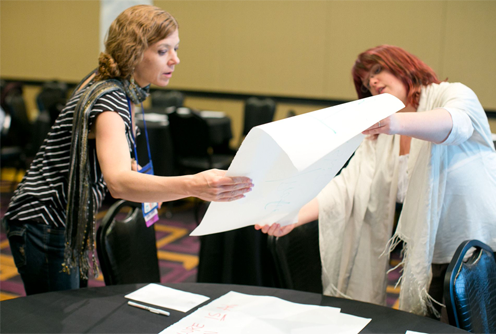
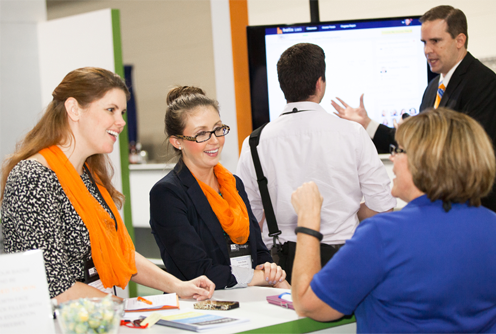
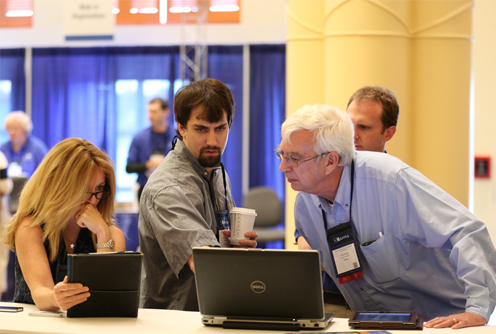
General Sessions are 30 minutes long, followed by a 45 minute Breakout Session.
Attendees will select one of three Breakout Sessions to attend following each general session.
All sessions are considered BYOD (Bring Your Own Device). There are 15 minute breaks between concurrent sessions.
All sessions are in the Kauffman Foundation Conference Center. All Sessions are in Central Time (CT).
The Kauffman Foundation Conference Center, 4801 Rockhill Rd., Kansas City, MO 64110
Hotel options in the Country Club Plaza area (near Kauffman Foundation Conference Center) can be found in the downloadable travel document.
The University of Missouri-Kansas City (UMKC) consistently ranks as a Princeton Review Best Value College and serves more than 16,000 diverse undergraduate, graduate and professional students regionally and internationally. UMKC is globally recognized for its research, entrepreneurial education, health professions campus and visual/performing arts. Since it initiated online education rankings, U.S. News and World Report each year has placed UMKC online graduate nursing in the Top 20. UMKC champions urban initiatives, and was selected by the Carnegie Foundation for the Advancement of Teaching for the coveted Community Engagement Classification.Visit umkc.edu, Facebook, Twitter, YouTube and tumblr to learn more about us.
Pearson, the world’s leading learning company, partners with institutions and educators to provide personalized and connected learning solutions. Pearson delivers comprehensive educational services for on-ground, blended and online programs including digital content, curriculum development and course design, market research, recruitment marketing, student support and retention services, faculty training, and cloud-based learning management systems with advanced data analytics to monitor trends in student performance. Pearson is on a path to efficacy, with a commitment to measurable and improved learning outcomes for students worldwide.
For more information visit: www.pearsonhighered.com/online-learning
www.pearsononlinelearning.com
Pearson Online Learning Services Video
Facebook Link
@pearsonNorthAm
Contact Desiree Jewell
Director of Marketing – Online Learning
Desiree.Jewell@Pearson.com
Link-Systems International, Inc. is a privately held, educational technology and services company that has been dedicated to student success and student retention in K-12 education, higher education, and workforce development education since 1995. Our core technologies and services are:
For more information visit: www.link-systems.com
PDFs:
NetTutor
WorldWideWhiteboard
MyAcademicWorkshop
Facebook Link
Follow NetTutor on Twitter @nettutor
ProctorU provides distance proctoring services for colleges, universities and certification organizations that offer examinations online. The service allows students to take their exams from nearly anywhere in a secure environment. ProctorU uses a patent-pending three-step process that confirms that the examinee who registered for the exam is the individual who is taking the exam and is following the institution’s testing requirements. The service is modeled after the in-classroom experience and proctors monitor the entire process in order to ensure that a high level of integrity is maintained. ProctorU offers live, person-to-person, real time monitoring to almost 500 colleges, universities and certification organizations, including the University of Alabama, the University of Florida, Northwestern University and the Bloomberg Institute. ProctorU operates dedicated proctoring centers in Folsom and Livermore, Calif., and Hoover, Ala.
For more information visit: www.proctoru.com
PDFs:
Learn More About Proctor U
Information Packet
What’s New with ProctorU
Facebook Link
ProctorU Twitter
If you are an education technology or distance learning company, this intimate one-day session will give you the chance to collaborate with educators, administrators, and online learning professionals – your potential clients in discussion forums, at lunch and in our small exhibitor showcase.
